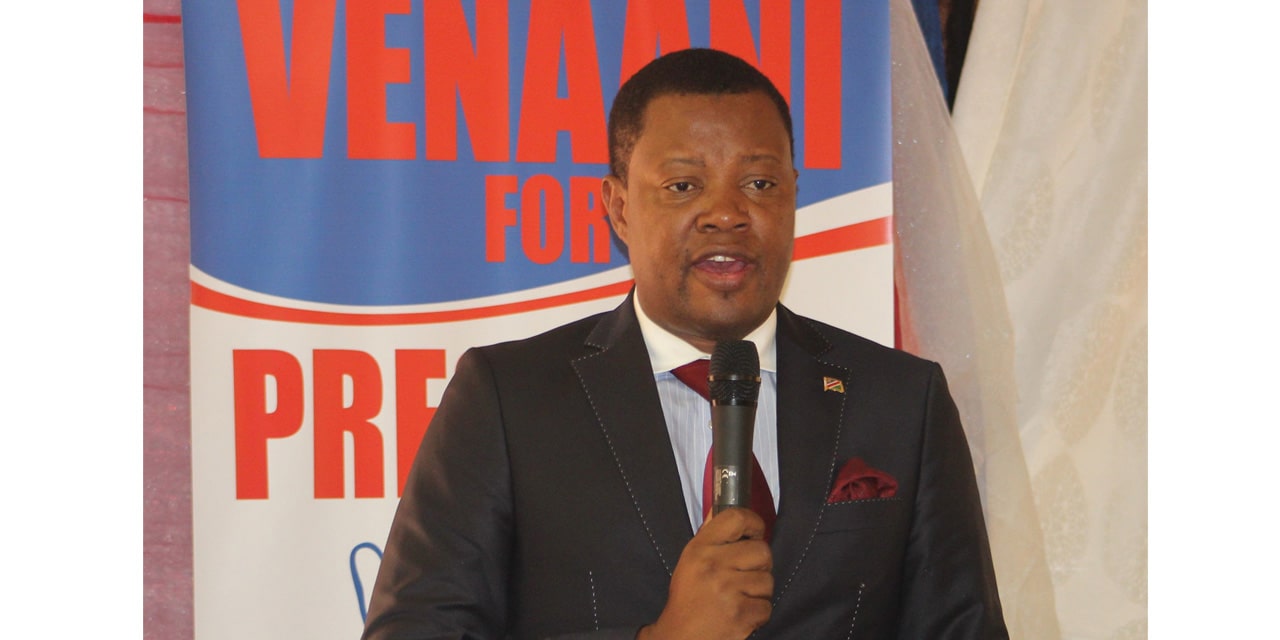Eba Kandovazu
POPULAR Democratic Movement (PDM) President, McHenry Venaani, is calling on a re-negotiation of the Genocide deal, with an all parties Select Committee of the National Assembly as the midwife on the road towards the re-negotiation along with the government and the affected communities.
This, he says, is because the National Assembly had a ‘diminished role’ when it came to engaging in the Genocide debate. “If a Parliament’s membership is truly representative of the country’s population, the decisions taken by parliamentarians in respect of genocide agreements would be endorsed by the people as its democratically elected representatives bearing their best interests, ” Venaani states.
Venaani also suggests that Germany invests in student exchange programmes to Germany, skills training, and transfer of skills to the affected communities or investing into and developing green energy in Namibia, while calling on the Namibian government to engage with the representatives of the affected communities, both in the country and in the Diaspora.
“It is their birthright to be involved in these talks. They must be part of the story, just as they were part of the painful past,” Venaani states.
He also says Germany’s late in the game admission and recognition of the Genocide is not genuine, urging the Namibian government to ensure that Germany recognises Genocide within the context of international law. “It is truly not genuine but half-baked, just to get out of a very sticky situation. One cannot admit to a crime but refuse to accept the
consequences thereof, even under international law. It is clear to us that the German government uses the words reconciliation and reconstruction rather than reparations in the suggested agreement for a purpose, which the Namibian government did not grasp. It is a general principle of public international law that any wrongful act [of] a violation of an obligation under international law, gives rise to an obligation to right the wrong,” he says.
According to Venaani, the €1.1 billion (approximately N$ 19 billion) that is being offered to the affected communities by Germany, is equivalent to the amount that the German government has donated to the Namibian government in foreign aid since 1990.
“The proposed €1.1 billion spanning over 30 years is to all intents and purposes a continuation of foreign aid to a client state that Namibia is to Germany. It is not about atoning for the atrocities committed against the Ovaherero and Nama people. Let us not forget that during the peak of the Novel Corona Virus outbreak, the German government set aside the same €1.1 billion as stimulus for the revival of the German arts and culture industry. Can we really argue that the immeasurable losses suffered by the Herero and Nama people can amount to the same budget given to the revival of the arts and culture industry in Germany? The answer is no. This is a flagrant display of arrogance by the German government towards the affected communities and should not be construed any less,”Venaani argues.




